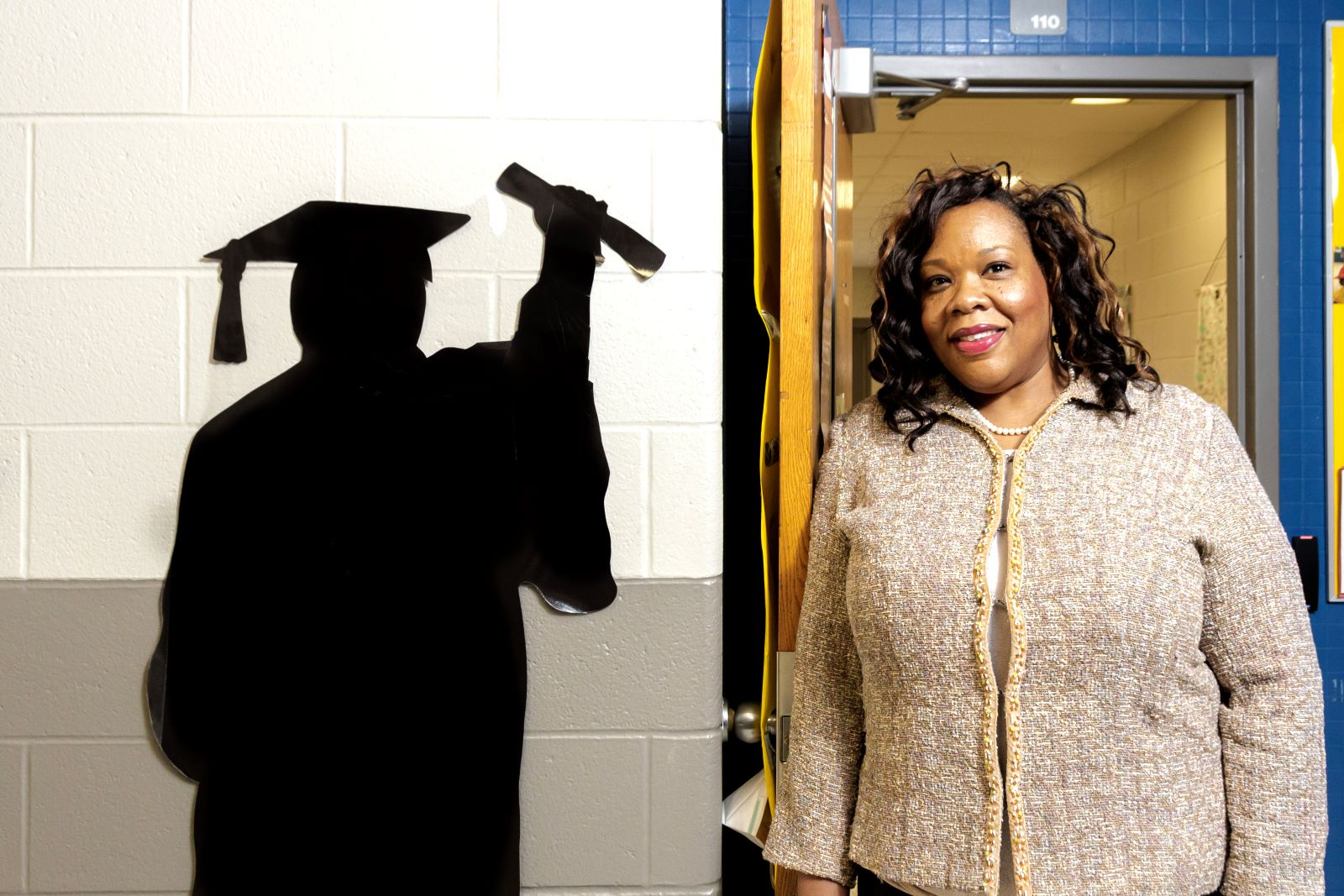Kim Riley said the idea for The Transition Academy came from her own experience of creating a post-high school plan for her teenage son, who has autism. Riley is founder and executive director of The Transition Academy and one of eight Black-led organizations that received $20,000 grants through the Centering Black Voices leadership and capacity development pilot for 2022.
Riley said children receiving special education services through an Individualized Education Program (IEP) are required to have a transition meeting at age 16 through their public school to help plan for education and work post-high school – but she found that transition planning wasn’t an easy, or straightforward, task.
“I learned quickly there’s no coordinated system for parents; the information provided is confusing and hard to understand,” said Riley. “As you think about your child’s future, there is no platform that connects you to opportunities and walks you through the steps – it’s up to the parent to figure out.”
 Riley said her experience exploring potential options for her son and advocating for him throughout that transition after high school motivated her to “fix the system” to help other parents like her.
Riley said her experience exploring potential options for her son and advocating for him throughout that transition after high school motivated her to “fix the system” to help other parents like her.
She began developing her own design for a coordinated system and the resources she believed should be in place, modeling the concept after the kinds of college recruitment resources available to the general population. Her ideas included options for college tours, on-site assistance, and introductions to campuses and vocational work.
The outline for The Transition Academy began to take shape in 2017. Riley participated in an E-Scholars entrepreneur pitch event in 2019 through the UMKC Regnier Institute for Entrepreneurship and Innovation. Her pitch earned her a financial award that allowed her to complete the required paperwork to establish The Transition Academy as a 501c3 nonprofit organization.
Riley said securing the nonprofit designation opened up opportunities for her to tap into public and private grants and meaningful partnerships. In 2020, her focus turned to forming partnerships with community organizations, teachers and state vocational-education case managers in Kansas and Missouri. She continued to pursue pathways toward a more seamless system that would reduce frustration and duplicative efforts. A big piece of her vision for an effective system that is still in development involves designing a tech platform that offers one-stop access to transition information and opportunities for Kansas and Missouri.
Transition planning involves identifying post-secondary goals based on students’ strengths, interests and functional supports, which could include housing, transportation, assistive technology and other assistance. Workforce data on individuals with disabilities shows that unemployment for persons with disabilities is more than twice that of those without disabilities.
In 2021, Riley established an agreement to provide transition activities to Kansas City Public Schools high school students and open a workspace at Central High School in Kansas City, MO. The pandemic presented some hurdles, but Riley retooled her efforts to do networking by phone and online, and assisted parents similarly.
“COVID has been a blessing and a curse,” she said. “We planned to do bus tours of college and jobs programs, but it couldn’t happen because of the pandemic. So, we shifted and are now planning for a metro-wide college and career fair to bring a lot of these resources together.”
The KC DiversAbility Career Fair will be held Thursday, April 14, at the Metropolitan Community Colleges-Penn Valley campus. The fair will include colleges, employment specialists, disability application services and more. Riley said employers have responded positively to the event because it enables them to meet with potential employees at one site.
In terms of next steps for the nonprofit, Riley said she will use the Centering Black Voices experience and technical assistance to make sure the organizational infrastructure is firmly in place. This includes board structure, operating and human resource guidelines, and fulfilling staffing needs.
The Transition Academy has one full-time employee and two contractors who provide program and IT support. A 2022 grant from the Jackson County Children’s Services Fund will provide funding for two full-time social workers. Riley also plans to hire an office manager.
“Entrepreneurship can be a lonely journey,” said Riley. “I’m excited about the opportunity to get support for my organization and to learn from others involved in Centering Black Voices so that our team can help break the trajectory of high unemployment and lack of support for these young people who want, need and deserve to live productive lives.”
The REACH Foundation announced $20,000 awards in February 2022 to eight nonprofit organizations participating in the Centering Black Voices leadership and capacity development pilot. Five organizations were awarded a second year $20,000 grant; three organizations are new to the pilot in 2022.



